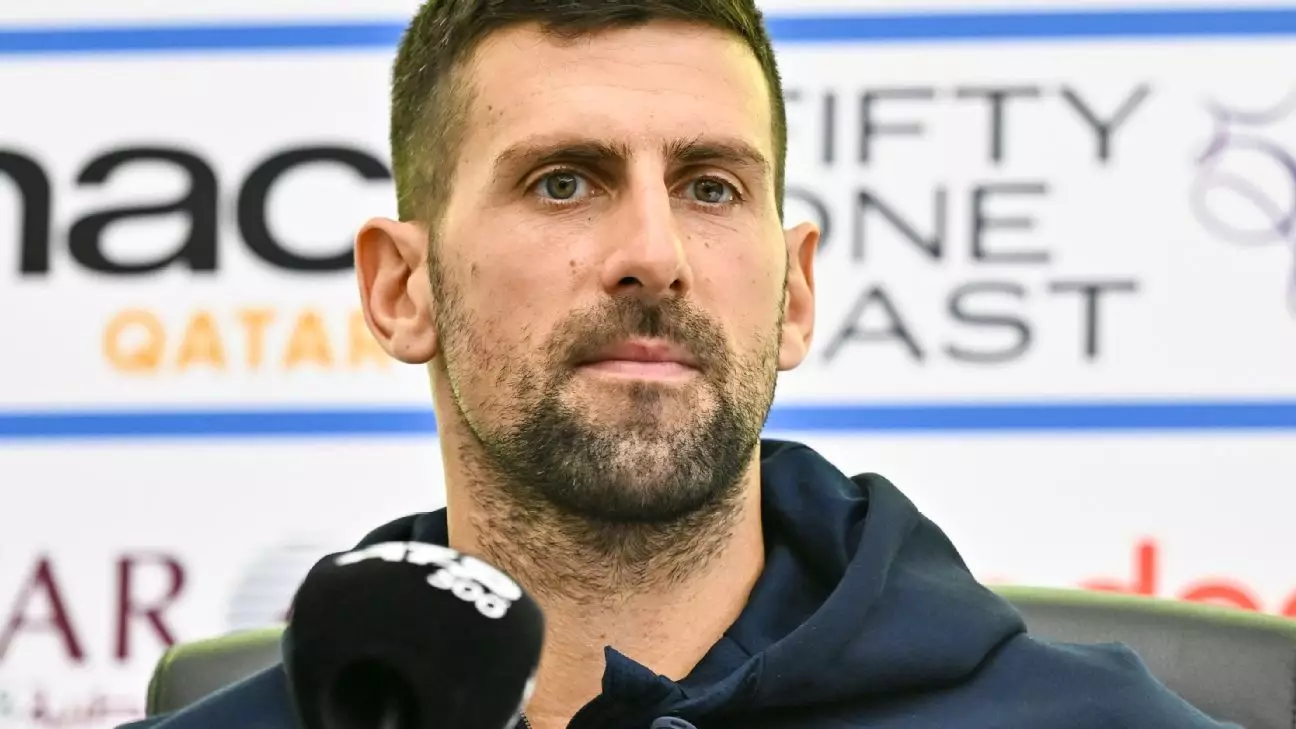In a remarkable show of solidarity, a cohort of elite tennis players, including heavyweights like Novak Djokovic and Jannik Sinner, have banded together to address an issue that has long simmered beneath the surface of sport’s most celebrated events. In March, they put pen to paper, collectively demanding a fairer share of the financial pie that the Grand Slam tournaments generate. Their open letter to the tournament heads illustrates a growing concern among players regarding their financial remuneration and the operational decisions that ultimately impact their careers and well-being. Their unity sends a powerful message: players want more agency in a system they feel has undervalued their contributions for too long.
This call to action is timely and necessary, especially in an industry characterized by vast revenues. It’s glaringly clear that while fans flock to stadiums and televisions to watch their favorite players compete, the lion’s share of the profits generated from these events often flows towards the tournament organizers. The athletes are asking not only for increased prize money but also for a more significant role in the decision-making processes that affect the very competitions they pour their energy and passion into.
Financial Stakes: Prize Money Remains a Bone of Contention
The players’ demand for enhanced financial contributions towards player welfare programs is particularly revealing of their awareness of the physical and mental toll that high-level competition inflicts. The financial gap between the income generated by Grand Slam tournaments and the distribution of that income to the players needs to be addressed urgently. It appears that the players’ request for prize money to be reflective of their contribution to the overall event revenue is not just about fair pay; it’s about respect.
Consider the staggering statistic that the U.S. Open reportedly made more from the sale of a single specialty cocktail than it paid out to both singles champions combined. Such figures emphasize a considerable disparity, sparking outrage and prompting players to reevaluate their worth in a lucrative industry that capitalizes on their performances. The sincere call for justice reflects a broader sentiment of discontent brewing among athletes from various sports, who increasingly feel like mere spectacles rather than valued contributors.
The U.S. Tennis Association’s announcement of a record total compensation pool is commendable, yet it merely scratches the surface of what players seek. As they raise their voices collectively, they unveil a demand not just for an increase but for a fundamental shift in how player contributions to events are valued.
Player Agency: An Essential Element of Modern Sports
Among the most compelling points raised in the letter is the advocacy for a more pronounced player voice in tournament decisions. The emphasis on a greater say in matters impacting competition and player welfare reflects a significant evolution in athlete consciousness. With ongoing disputes over contracts and tournament logistics, the current structures appear outdated and less responsive to the players who ultimately drive the sport.
For a long time, tennis has operated under a rigid hierarchy where tournament organizers hold the reins. What this collective appeal signals is unprecedented: players are increasingly unwilling to remain passive actors in a system they feel disconnected from. They want a seat at the table, and they are courageous enough to demand it.
This demand is not an isolationist phenomenon; rather, it mirrors a wider cultural shift in sports, where athletes from various disciplines are taking charge of their narratives. The advocacy for a democratic voice in sports management reflects an evolved understanding of the athlete’s role beyond simply competing. They are vested stakeholders in the game, deserving of consideration and respect.
A Historical Context: Echoes of Change
As history shows, significant changes in sports finances often arise from collective player movements. From the early days of professional sports to the major leagues we see today, champions of player rights have fought for equitable pay structures and conditions. The present letter from this generation of players harkens back to those pivotal moments, illustrating a continued legacy of advocacy within sports.
Just as in previous decades, the groundwork being laid today will not yield immediate results. However, it is a crucial step towards a framework that increasingly values and compensates players for their our law in the market they help build. The question now is whether the Grand Slam tournaments will respond positively to these demands, or whether they will resist in the name of tradition, essentially staying rooted in outdated paradigms.
Tennis stands at a crossroads, and the players’ united front challenges not only the status quo but compels organizations to reconsider their operational models thoroughly. This moment has the potential to redefine the landscape of the sport and elevate the status of athletes within this vibrant global community. In this era of rising player empowerment, it’s refreshing to see the advent of principled disagreement, setting the stage for the long-overdue evolution of player rights in professional tennis.


Leave a Reply